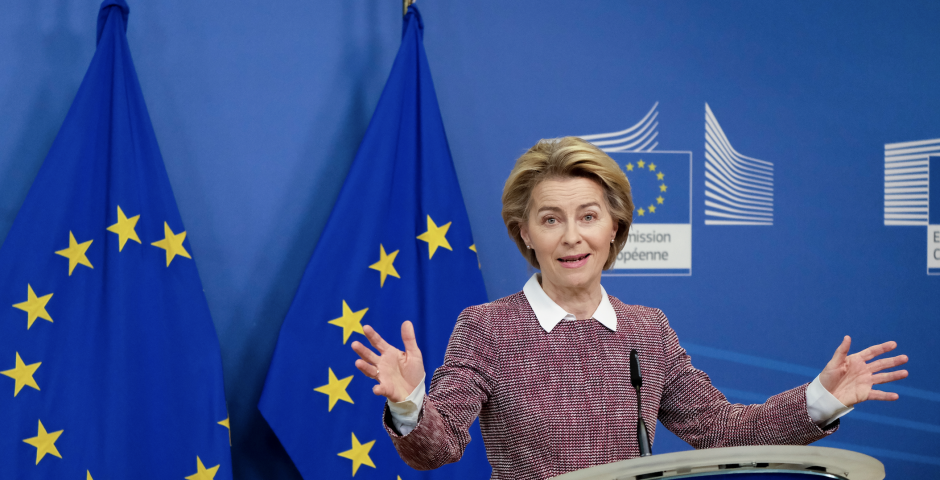Why do Europeans know so little about the EU?

- Why knowledge of the EU is important for European citizenship.
During the American presidential elections, half of the Dutch population knew exactly how the electoral college, and all kinds of other underlying electoral laws worked. At the same time, many Dutch people and other Europeans still do not know exactly how our own European institutions relate to each other. What, for instance, is the difference between the European Council and the Council of Europe? And what exactly is the role of the European Commission? These are common questions, but what is the underlying cause of this lack of knowledge? Is it because news agencies pay too little attention to EU related topics, or do schools not explain it well enough? Or could it be that European politics is simply too boring or too difficult to really delve into?
Citizenship
It may well be that we Europeans do not really feel like European citizens. Eurobarometers and other research show that most Europeans tend to identify most with their own nationality. Hence, we feel much more Dutch or Romanian than European. Part of being a citizen is the ‘civic duty’ to immerse yourself in the rule of law and politics of your country, especially in a healthy democracy. If you do not feel like a real citizen of a political community, you take less interest in politics and constitutional relations. Along this line, many Europeans simply do not find the EU relevant enough to engage with as citizens. However, this does not mean that the EU has no impact on their lives. Therefore, schools should pay much more attention to this topic, especially in subjects such as civics and citizenship.
Training
There has been little research done into the teaching of European citizenship. A few studies into the content of school textbooks do indicate that the EU is mainly presented historically and factually, and as a process with one direction, namely towards more integration. Within school textbooks, there is little room for discussion of new ideas within Europe. For instance, in the Netherlands, it also appears that knowledge on the EU is not very well developed amongst Dutch school pupils yet. An opinion panel among school pupils shows that 53 percent of the respondents thought that Norway was a member state. 54 percent of the surveyed pupils, however, indicated that they do want to learn more about Europe. This is also necessary, since one third of the respondents claim that the EU has never really been discussed. In addition, 20 percent of pupils say that they have only had one lesson on the EU. This shows that, in general, students receive little education about Europe and that there is little room for debate. Yet debate and discussion are important for the development of citizenship, especially as the EU has such a large impact on the lives of its citizens.
Media
The media also has an important role to play; it has to report on political developments to enable people to make informed decisions. In addition, the media has a watchdog function and should monitor the government, and this also applies to European governments. Some studies show that the coverage of European elections and other affairs often focuses on ‘competitions’. Which person will be the new leader, which country will win this issue, and so forth. There is little focus on substantive policy issues, making it harder for people to understand underlying themes, such as the financing structure behind agricultural policy. In addition, a disproportionate amount of attention is paid to the European Council compared to the Parliament and the Commission. This is partly because European heads of state and national ministers are often better known with the general public. Ursula von der Leyen could be an exception to this. Names from the European Parliament are often unknown, which can make the news about discussions in the parliament more boring and difficult to understand. This creates an unbalanced image of the EU and does not make it any easier to distinguish between the institutions. People see ‘Brussels’ as a single entity.
Indifference
Another explanation may lie in the indifference of citizens. In particular, citizens with a negative opinion of the EU have little reason to look into it. Especially people who already consider the EU to be an undemocratic and technocratic institution have little reason to get involved, because they have already concluded that they have no influence on Europe. In addition, there is a large number of people who are simply not interested in the EU. This indifference is also reflected in the large number of Dutch people who positioned themselves as neutral towards the EU between 2000 and 2018: between 34 percent and 42 percent. It is also reflected in the low turnout for European elections. In the Netherlands, the turnout for the 2019 elections was only 42 percent. This indifference is partly caused by the aforementioned lack of European citizenship.
National arena
The low level of knowledge about European institutions is partly due to the national political parties. European political parties are affiliated with national parties, so many voters look to the national party in European elections. Voters also look to national parties for positions on European issues. They are therefore an important link in the provision of information; what they do and do not put forward has a great deal of influence on the knowledge of their supporters. However, national politicians often use the European elections for their own gain by bringing up national issues during the European election campaign. Also, national politicians are often more prominent during these election campaigns than the European faces, which means that they still do not gain much name recognition. This makes it more difficult for EU citizens to follow the actual EU debate.
The British as a spectre
Little knowledge about the EU among the population can lead to strong polarisation. For example, many Brexit voters in 2016 had very little knowledge about the EU according to surveys conducted just before the referendum. A 2015 survey also found that Britons had the least knowledge about the EU and its institutions of all member states. Within this survey by The Guardian, respondents were asked basic questions about EU institutions, which they therefore often answered incorrectly. Without much knowledge about the EU, Brits are hugely polarised on the subject.
One could argue that basic knowledge is necessary to make a good decision about membership – you should know what you do or do not want to be a member of, otherwise a productive debate is impossible. More knowledge about the EU can lead to better discussions about the actual performance of the EU and European policy. This, in contrast to the Brexit debates, could also result in changes that are beneficial to Europeans. More insight into the EU thus allows for a more substantive and critical debate with probably less polarisation. Better insight into what the EU is and how it works will allow for the debate to be broadened and more nuanced.
Democracy and solidarity
A lack of knowledge about the EU can also lead to less solidarity between the citizens of different Member States. Knowledge of European politics is an important factor in a sense of belonging. When you feel that you share a government, you are more likely to feel akin to someone else. Solidarity is a basic condition for the EU, after all the Union was founded on this sentiment and without solidarity there are few reasons for its continued existence.
This sounds quite serious and pessimistic. The good news is that knowledge about Europe is increasing. In the Netherlands for example, an increasing number of people indicate to be familiar with the workings of the EU. Moreover, there are a lot of potential solutions. Schools can create a more active debate and breathe life into European issues. National politicians can also clarify European issues more frequently. In addition, the media could publish policy items about the European Union more often, in order to give a more complete picture of the EU. This would not happen overnight, but it is necessary for a better understanding of how European politics works. The combination of knowledge and interest can bring about a positive change here. If people have more knowledge, they will be more interested in it. The same applies the other way round: when something interests you, there are more incentives to delve deeper into it. More basic knowledge could therefore lead to a positive snowball effect.
For those who are interested in learning more about how the EU works, the short video below published by the European Parliament is a good start!
Anoek Zijderveld has recently graduated and has a Master’s degree in International Relations: Global Political Economy
Featured image: Shutterstock




